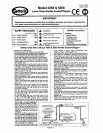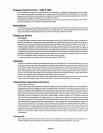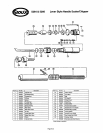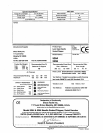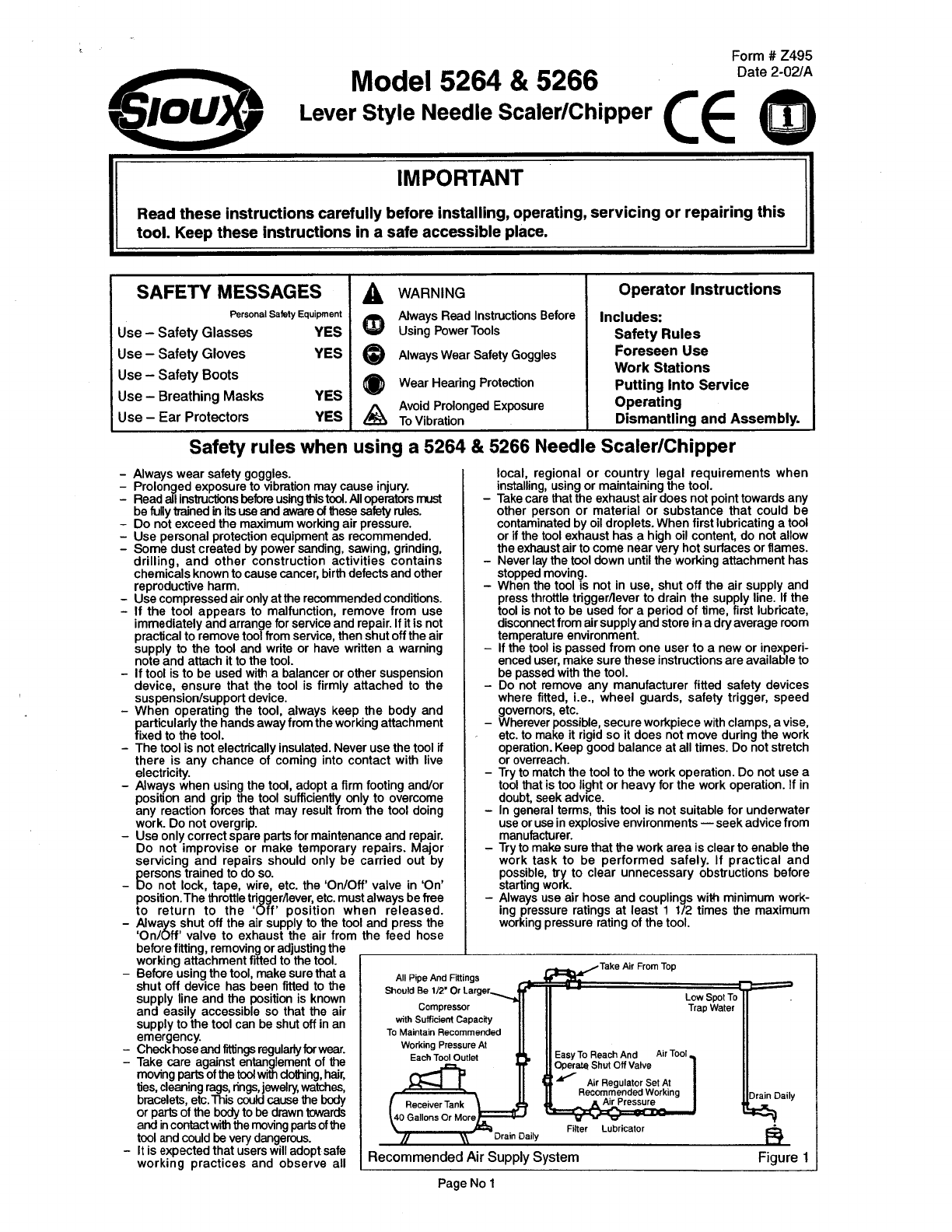
Form
#
Z495
Model
5264
&
5266
Date 2-02lA
Lever Style Needle ScalerIChipper
7
IMPORTANT
Read these instructions carefully before installing, operating, servicing or repairing this
tool. Keep these instructions in a safe accessible place.
..
1
SAFETY MESSAGES
1
A
WARNING
1
Operator Instructions
Personal Safety Equipment
Always Read Instructions Before
Includes:
Use
-
Safety Glasses
YES
1
@
Using Power Tools
1
Safety Rules
Safety rules when using a 5264
&
5266 Needle ScalerIChipper
Use
-
Safety Gloves
YES
Use
-
Safety Boots
YES
Use
-
Breathing Masks
Use
-
Ear Protectors YES
-
Always wear safety goggles.
-
Prolonged exposure to vibration may cause injury.
-
Read all instructions
before
using this tool. All operators must
be fully trained
in
its
use
and
aware
of
these
safety
rules.
-
Do not exceed the maximum working air pressure.
-
Use personal protection equipment as recommended.
-
Some dust created by power sanding, sawing, grinding,
drilling, and other construction activities contains
chemicals known to cause cancer, birth defects and other
reproductive harm.
-
Use compressed air only at the recommended conditions.
-
If the tool appears to malfunction, remove from use
immediately and arrange for service and repair. If it is not
practical to remove tool from service, then shut off the air
supply to the tool and write or have written a warning
note and attach it to the tool.
-
If tool is to be used with a balancer or other suspension
device, ensure that the tool is firmly attached to the
suspension/support device.
-
When operating the tool, always keep the body and
particularly the hands away from the working attachment
ixed to the tool.
-
The tool is not electrically insulated. Never use the tool
if
there is any chance of coming into contact with live
electricity.
-
Always when using the tool, adopt a firm footing and/or
position and rip the tool sufficiently only to overcome
any reaction forces that may result from the tool doing
work. Do not overgrip.
-
Use only correct spare parts for maintenance and repair.
Do not improvise or make temporary repairs. Major
servicing and repairs should only be carried out by
persons trained to do so.
-
Do not lock, tape, wire, etc. the 'OnIOff' valve in 'On'
position.The throttle tri gertlever, etc. must always be free
to return to the '6ft' position when released.
-
blwa s shut off the air supply to the tool and press the
On/8ff1 valve to exhaust the air from the feed hose
before fitting, removing or adjusting the
workina attachment fitted to the tool.
(^
Always Wear Safety Goggles
@
Wear Hearing Protection
Avoid Prolonged Exposure
A
T
o
Vibration
-
~eforeusing the tool, make sure that a
shut off device has been fitted to the
supply line and the position is known
and easily accessible so that the air
supply to the tool can be shut off in an
emergency.
-
Check hose and fittings regularty for wear.
-
Take care against entanglement of the
moving parts of the tool with clothing, hair,
ties, cleaning rags, rings, jewelry,
watches,
bracelets, etc. This could cause the
body
or parts of the body to be drawn towards
and
in contact with the moving parts of the
tool and could
be
very dangerous.
-
It is expected that users will adopt safe
working practices and observe all
ores seen
Use
Work Stations
Putting Into Service
Operating
Dismantling and Assembly.
local, regional or country legal requirements when
installing, using or maintaining the tool.
-
Take care that the exhaust air does not point towards any
other person or material or substance that could be
contaminated by oil droplets. When first lubricating a tool
or if the tool exhaust has a high oil content, do not allow
the exhaust air to come near very hot surfaces or flames.
-
Never lay the tool down until the working attachment has
stopped moving.
-
When the tool is not in use, shut off the air supply and
press throttle triggerhever to drain the supply line. If the
tool is not to be used for a oeriod of time. first lubricate.
disconnect from air supply and store in a dry average room
temperature environment.
-
If the tool is passed from one user to a new or inexperi-
enced user, make sure these instructions are available to
be passed with the tool.
-
Do not remove any manufacturer fitted safety devices
where fitted, i.e., wheel guards, safety trigger, speed
governors, etc.
-
Wherever possible, secure workpiece with clamps, a vise,
etc. to make it rigid so it does not move during the work
operation. Keep good balance at all times. Do not stretch
or overreach.
-
Try to match the tool to the work operation. Do not use a
tool that is too light or heavy for the work operation. If in
doubt, seek advice.
-
In general terms, this tool is not suitable for underwater
use or use in explosive environments -seek advice from
manufacturer.
-
Try to make sure that the work area is clear to enable the
work task to be performed safely. If practical and
possible, try to clear unnecessary obstructions before
starting work.
-
Always use air hose and couplings with minimum work-
ing pressure ratings at least
1
112
times the maximum
working pressure rating of the tool.
Take Air
From
Top
All
Pipe And
Fittings
Should
Be 112"
Or
Larger
,
Compressor
with
Sufficient Capacity
To
Maintain
Recommended
11 11
11
Workina
Pressure
At
11 11
1
Recommended Air Supply System
Figure
1
Page No
1



